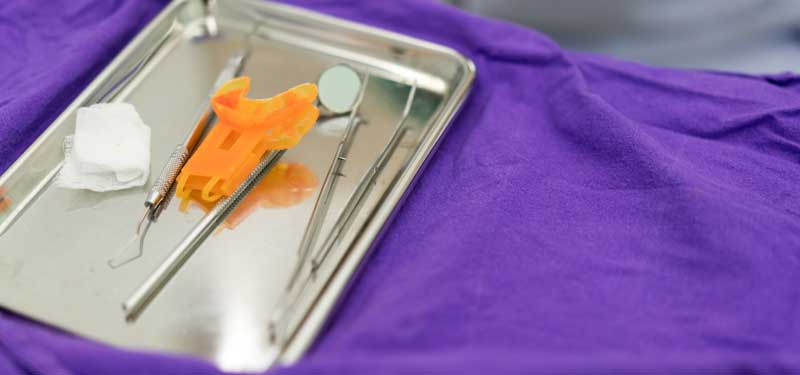Finding the right Medicare plan can be a tough task for someone over 65. There are a lot of options to choose from just considering basic coverage, and then you’ve got to decide if you want additional things covered like prescriptions.
For the most part, Medicare gives seniors the medical care they need. There’s one major area, however, where many seniors actually aren’t covered – their teeth. Medicare covers any dental care that results in a hospital stay, but routine dental procedures aren’t covered.
The coverage most people know about, Original Medicare (Parts A and B) does not include basic things like dental examinations, yearly cleanings, crowns, fillings, or dentures. There are a few exceptions, like when a hospital stay is required, but you’ll pay out of pocket for anything tooth related. And for seniors who are already watching their income, paying out of pocket for these expenses may be impossible. Perhaps that’s why almost 20 percent of seniors have untreated decay.
Additional Dental Coverage Options
For seniors who already have Medicare coverage, here are five ways to get additional dental coverage.
-
Choose A Medicare Plan That Has Dental Coverage. While the basic Medicare options don’t cover dental care, you can sign up for Medicare plans that do. Several “Advantage” plans (which an estimated 50 percent of seniors take advantage of), like Part C, cover preventive services like exams and cleanings, basic services like fillings, extractions, and X-rays, and major services like root canals and crowns. Also, remember if you’re choosing a Medicare plan to cover your dental needs, it’s important to think about what you need not just right now, but in the future. If you expect you’ll need dentures (25 percent of seniors have no natural teeth) or partials in the years to come, be sure you have a plan that covers those.
-
Purchase Stand-alone Dental Insurance. One of the easiest ways to get dental insurance while you have Medicare is to simply purchase it. There are stand-alone dental insurance plans available where you pay a monthly premium just like any other insurance plan. These insurance plans require you to see an in-network dentist, but you’ll receive annual cleanings at no charge as partial coverage for dental work.
-
Sign Up For A Discount Dental Plan. A discount dental plan may seem similar to insurance on the surface, but it’s actually quite different. With insurance, you usually have a network of dentists to choose from, you pay a certain portion for your dental care, and insurance pays the rest. With a discount plan though, you pay a membership fee – usually cheaper than insurance. That membership entitles you to a discounted rate at certain dentists (normally 25 to 50 percent). Keep in mind, you’re still responsible for 100 percent of the remaining cost after the discount.
-
Join A Spouse’s Dental Plan. This isn’t an option in a situation where two spouses are on Medicare, but it’s an option that’s important to address because many people miss it. If you have a spouse who is employed and on a traditional insurance plan, there’s a good chance you can be added to just their dental plan.
-
Watch For Low-Cost Or No-Cost Dental Clinics. If you keep an eye on your local newspaper or TV station, you may find out about a low-cost or no-cost dental clinic coming to your area. In these clinics, dentists and dental hygienists offer their services to help people who can’t otherwise afford it. Some of these clinics have income requirements or require that you be receiving certain government assistance, but many have no requirements at all and operate on a first come basis. Be warned that these clinics are open to everyone and usually have very long lines. You can also find a list of these clinics on the Free Clinics website.
It’s important to look at and know about all of your options as everyone’s circumstances are different. These options can greatly reduce the cost of routine dental services.

Bottom Line
Many people put dental care off until they absolutely need it, and many seniors take the same approach with their dental insurance. Preventative care is key for oral hygiene, so you’ll want to have a dental plan in place before problems arise.
Fortunately, for people who depend on Medicare, there are options available for dental insurance. Some are more affordable than others, but of course, the more expensive options provide more coverage. Take the time to research and find out what option is best for your needs. Your dental health is important, and with a little planning, you can make sure you have a healthy smile for years to come.


